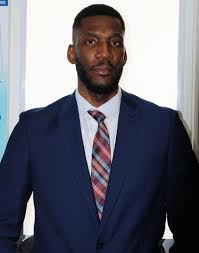A young Nigerian naval architect, David Okafor, has made the country proud by winning a major international paper competition organised by the Society of Naval Architects and Marine Engineers (SNAME), Western Europe Section. The competition focused on solving global challenges related to electrifying waterways, and Okafor’s paper, which centred on sustainable marine transport in Lagos, came out on top.
Caverton Offshore Support Group, the parent company of Caverton Marine, announced the achievement in a statement on Sunday. The company described the winning paper, titled “Electrification of Inland Waterway Transportation in Lagos State,” as a groundbreaking contribution to the future of marine mobility. According to Caverton, the paper aligns strongly with the company’s vision for environmentally friendly marine operations and the promotion of innovative technology in Nigeria’s maritime sector.
Okafor’s paper examines how Lagos State, Nigeria’s commercial capital and most densely populated city, can shift from traditional petrol-powered ferries to electric-powered ones. His research focuses on how this transition can significantly cut greenhouse gas emissions while improving efficiency and reliability on Lagos’ underused inland waterways.
The study explores several important issues, such as how to design electric ferries, where to place charging infrastructure, and how these ferries can fit into the state’s existing transport system that includes buses and trains. Using simulations and comparative analysis, the paper shows that electric ferries could reduce greenhouse gas emissions by as much as 50 percent and cut operational costs by about 70 percent.
The CEO of Caverton Offshore Support Group, Mr. Bode Makanjuola, expressed pride in Okafor’s achievement. He said the recognition from SNAME is proof of the company’s focus on innovation and sustainability. “We are immensely proud of David’s achievement. His innovative approach aligns perfectly with our commitment to sustainability and the advancement of marine technology,” Makanjuola said.
He further noted that such breakthroughs are important for Caverton’s efforts to support cleaner energy use in water transportation. The company is already taking steps in that direction. Through a partnership with ExploMar (Suzhou) Energy Technology Co., Ltd, a Chinese company, Caverton Marine is integrating electric outboard systems into its OMIBUS passenger ferries. These ferries, commissioned by the Lagos State Government, are meant to improve the state’s water transport system and provide a more eco-friendly alternative to petrol-driven boats.
Makanjuola said the electrification of water transportation is not just about technical upgrades—it is a key strategy for improving Lagos’ transport system while also reducing the environmental damage caused by fuel-powered engines. He pointed out that this project supports the Lagos State Government’s Climate Action Plan, which aims to promote sustainability across different sectors.
He added, “With the support of the Lagos State government’s Climate Action Plan, this research provides a roadmap for sustainable practices that can be adopted in other coastal and inland regions.”
The company also sees the award as a reflection of the kind of talent it nurtures. “This recognition from SNAME underscores our dedication to exploring and implementing eco-friendly solutions in the maritime sector and ferry design and transportation in particular,” Makanjuola said.
He said Caverton Marine remains committed to promoting innovation and helping to shape the future of Nigeria’s maritime industry through investment in research, technology, and people.
This recognition from Europe also highlights Nigeria’s growing potential in maritime engineering and climate-conscious innovation. With initiatives like this, stakeholders believe the country can gradually reduce its reliance on fuel-powered transportation and shift towards cleaner, more sustainable solutions that also create new business and employment opportunities.
